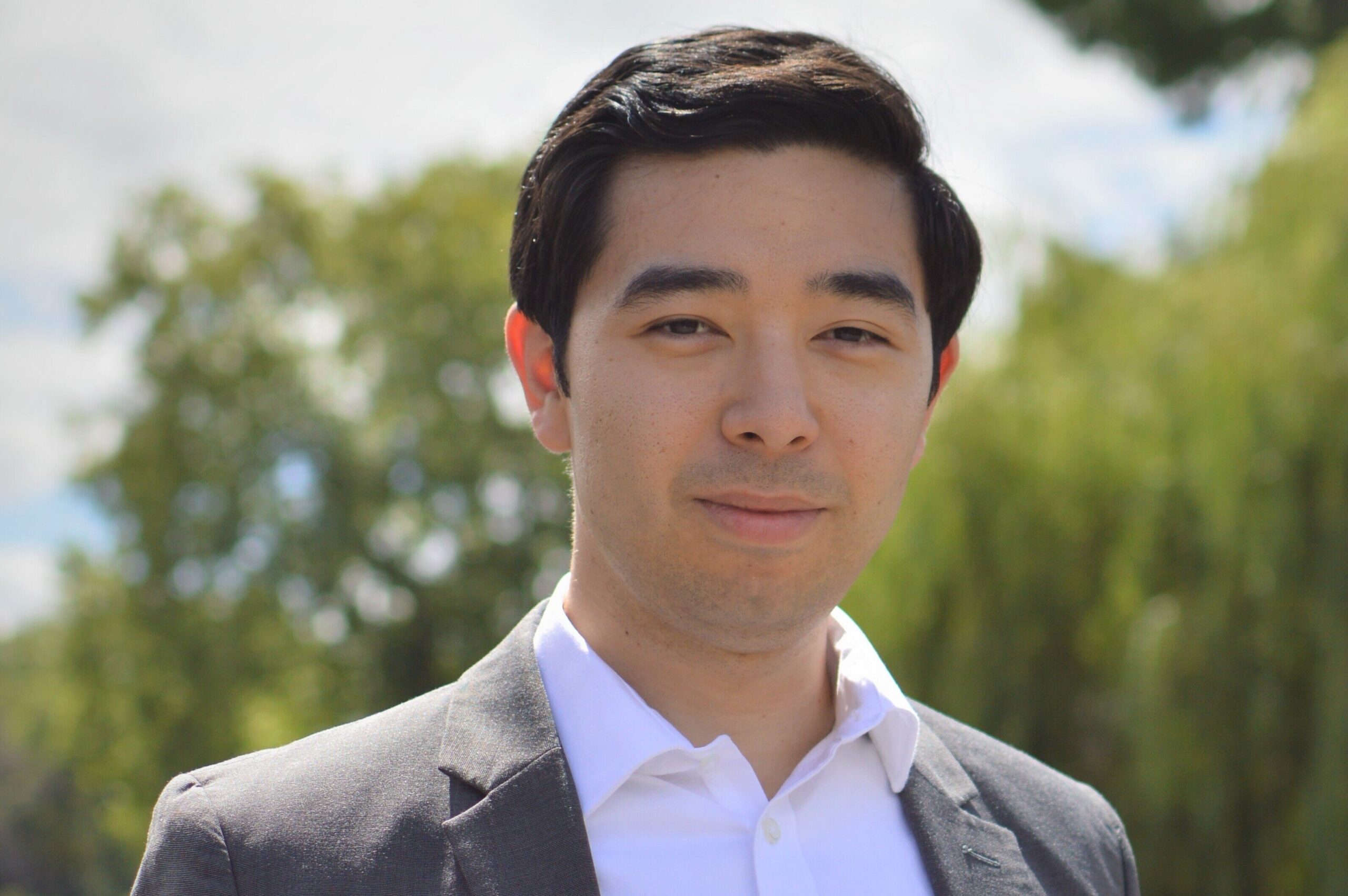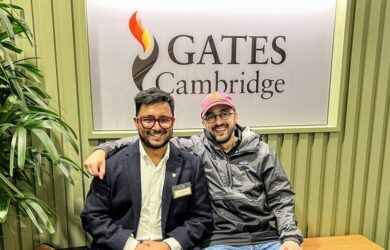
Rob Henderson speaks about his new book Troubled in which he reflects on the impact growing up in foster care has had on him.
Knowledge alone isn’t enough. For children, having a stable environment with two parents who implement rules, provide attentive care, and cultivate a sense of security goes a long way.
Rob Henderson
The summer before starting his PhD at the University of Cambridge, Rob Henderson was working up a book proposal with his literary agent. That book, Troubled, is published next month by Simon & Schuster and is part memoir, part social commentary.
In it Rob recounts his life growing up in foster care and his time in the military and later at Yale and then Cambridge, using that story to explore questions about social class, status, education and ‘luxury beliefs’ – the beliefs of middle class elites which, when put into practice, often have a damaging impact on those who are less socially advantaged.
Rob [2018] did his PhD in Psychology alongside writing Troubled. The book was many years in gestation, starting as a college application essay in the New York Times, followed by an op-ed piece on the importance of family and responsibility which was published just after he graduated from Yale.
It was not until 2020 that Rob signed with Simon & Schuster. That was to be fortuitous timing. During the first months of the Covid pandemic, Rob’s research slowed down because of the general uncertainty of the times and he was able to focus on writing the book as a side project. By 2021 he had finished a rough draft and over the next months he polished it into a final version.
“The book has been five years in the making,” he says. “It’s like doing another PhD.” His actual PhD, having started with a focus on moral psychology morphed into a study of the effects of Covid on moral judgement and behaviour. He also did a study of age and morality and says the one thing that links his academic work and his book is his curiosity about what leads to generosity and kindness “because so many people helped me along the way”.
Childhood
The book tells how Rob was taken from his birth mother at the age of two and spent five years in different foster homes in Los Angeles until he was adopted by a family from a small agricultural town in North California. His grades improved as his home life became more stable, but that changed again when his adoptive mother divorced his adoptive father. Her new female partner was shot when Rob was 14 and had to undergo multiple operations.
The couple invested their insurance settlement in property, but it was just before the 2008 recession when property was the worst investment and they started to haemorrhage money. They lost their home and the other properties they had bought. Rob’s mother and her partner moved to another city before later separating.
Rob, who was always an avid reader growing up, was finishing high school at the time and opted to move in with a friend. Along the way he writes about how he and his friends, many of whom were from similarly unstable family backgrounds, became involved in reckless behaviour and about his problems with alcohol. Eventually he signed up for the air force and through the military he got accepted to Yale.
In his book he talks about the emotional disadvantage often faced by children from disadvantaged backgrounds. He thinks too much attention is focused on education and upward social mobility. “There is no discussion of trauma, neglect, feelings of worthlessness and stressful interpersonal relationships that accompany an already impoverished upbringing,” he writes. “Knowledge alone isn’t enough. For children, having a stable environment with two parents who implement rules, provide attentive care, and cultivate a sense of security goes a long way.”
Luxury beliefs
He talks also of being surrounded by people from privileged backgrounds at both Yale and Cambridge and of how what he calls ‘luxury beliefs’, such as defunding the police, are often espoused by people who will be little, if at all, affected by the outcome of such policies if they were to be enacted.
He hopes his book will serve to make such people think more deeply about the consequences of such beliefs. But he also hopes the book will appeal to young people like him. For that reason the cover is of a kid on a bike and is purposefully written in an accessible style. “I want any curious 12 year old kid to be able to read it,” he says. “Curious kids and the educated public. When I first started thinking about doing a book project I tried to find memoirs written by foster kids, but most of what I found was fiction.”
He adds that he got some good advice from fellow Gates Cambridge scholar and author Tara Westover, who wrote about her own story of growing up in a Mormon survivalist family in rural Idaho in the best-selling book Educated. Although he says his book should not be compared with hers, it also tells the personal story of a young person growing up in an unstable family environment. “Those kinds of books are rare,” he says. “There are so many filtering mechanisms. You typically have to have contacts and a good university degree to get a publishing deal.”
A statistical anomaly
He was wary of his book appearing to give the message that if you study hard you can pull yourself up by your bootstraps. For that reason he talks a lot about his friends, some of whom spent time in prison, to show how unusual his story is. “I am a statistical anomaly,” he says. “No-one would give my friends a book deal. I felt I had a duty to tell my story, but I don’t want people to mistakenly think that what I was able to do is the expected outcome for kids in impoverished and unpromising circumstances.”
His friends have read the bits they appear in – he has changed their names – as he was anxious to get the facts right and they have been supportive. Rob has also been surprised by how much the book has resonated with people who have not come from a disadvantaged background, but have grown up with family instability and a sense of their own impotence, invisibility and loneliness. “They also deserve attention,” he says.
Rob has already done quite a bit of promotion for the book, including several podcasts and will be speaking at the Oxford Literary Festival. Although he will be travelling back to the US for promotional events, the UK remains his base for at least the next year.
We end our conversation by talking about his sister’s wedding. His sister is a big part of his growing up and he clearly has a strong relationship with her. Rob gave an emotional speech at the wedding about her. “It was just after I had finished the book and all the memories were swirling around,” he says.
*Troubled: A memoir of foster care, family and social class by Rob Henderson is published today by Simon & Schuster.












